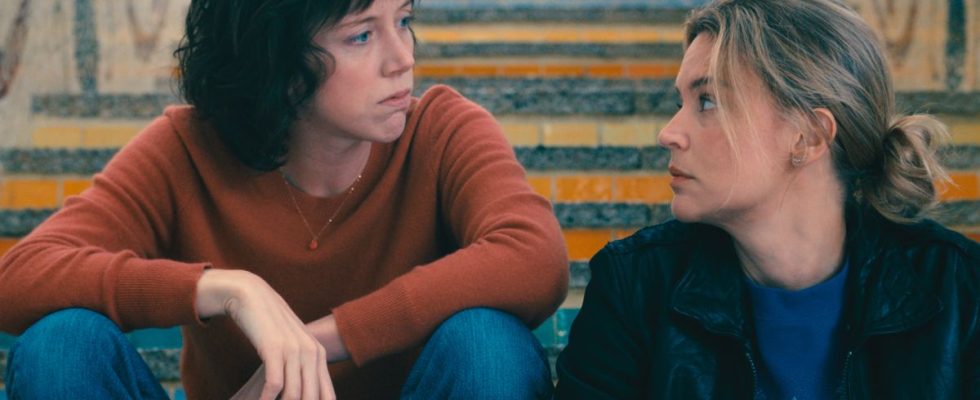“It’s an ironic title,” says Camille de Castelnau (The legends office), the creator of the series Everything is fine, broadcast this Wednesday on Disney+. Because everything is clearly not going well with the Vasseurs. The family is shaken by the leukemia of a child, Rose, and gradually settles into the pediatric intensive care unit of the Robert Debré hospital where each member reveals their weaknesses. If illness plays the main role in this choral series, it is also about family dysfunctions and mother-daughter neuroses. “The crisis highlights fault lines,” confirms Camille de Castelnau.
Around Rose is organized a trio of powerful and sometimes invasive women. First the matriarch, Anne (Nicole Garcia), Rose’s grandmother, a sort of personal development guru who firmly believes that happiness is decided. Even in the face of her granddaughter’s leukemia, she clings to the precepts on which she built her little notoriety as an author. Claire (Virginie Efira), Rose’s aunt, as lucid and down to earth as her mother is blinded by denial, becomes the mast that holds the rest of the family together at the risk of vampirizing the distress of her sister, Marion (Sara Giraudeau). ), Rose’s mother. Tossed between these two women, Marion goes through the most terrible ordeal that a mother can endure and gradually dissolves into grief. To forget her daily life, she puts her life on hold and secretly finds refuge with Louis (Mehdi Nebbou), a clown for sick children.
Portraits of mothers
Between the suffocating corridors of the hospital, the faces of mothers are expressed. “Often the mother characters are either the perfect mother, or Medea, the infanticidal mother. In reality, motherhood is a rich and complex territory that we have not finished exploring, underlines Camille de Castelnau. And in the series, we don’t explore it much. Being a mother also means giving up.” Through this maxim, “everything is fine”, mother-daughter dyads take shape, oppose each other, love each other, break up. We especially observe neuroses being transmitted in spite of themselves from generation to generation.
Anne’s anguish, who refuses to look misfortune in the face, infects Claire, whose lucidity borders on pessimism. “Anne is a cumbersome mother, who exposes her desires so much, who wants to be in the center so much that she can become difficult,” describes Nicole Garcia. “Claire has a knee-jerk reaction to her mother,” smiles Virginie Efira. She’s going through the most painful experience ever, a child’s illness, and her mother continues to entertain the idea that it’s going to be okay.”
For Sara Giraudeau, “in the character of Anne, there is a mother who feels responsible, a desire for control”. “Claire doesn’t have children but she needs to take care of others. Marion, between these two very invasive women, has taken more distance,” continues the actress. Anne and Claire look at each other in the mirror, judge each other and become angry with each other. However, it is the same anguish: that of seeing their loved ones suffer. And in the middle, Marion disappears. The more her daughter’s condition deteriorates, the more she refines her avoidance strategies.
Corrosive humor
The question of motherhood runs through the series from start to finish. Even though she did not choose to give birth, Claire multiplies the roles of mother. She is a stepmother to the daughter of her partner, Antonio, with whom she struggles to form a bond. She mothers her sister Marion to soften her daily life, to the point of taking the place of substitute mother for Rose. “There is a maternal instinct, even among those who do not have children,” notes Sara Giraudeau. Claire takes responsibility for the pain of her loved ones. She is ultimately as omnipresent as her own mother whom she blames for capturing all the light.
Faced with the inconceivable, the probable death of a child, the neuroses are freed. Marion’s modest discretion becomes a dissolution, Claire’s reliability turns into an intrusion and Anne’s optimism evolves into magical thinking. Everything is fine paints the portrait of a matriarchal family where the drama is infiltrated by a corrosive humor reminiscent of that of Fleabag by Phoebe Waller-Bridge. “Let anyone who has never laughed at a funeral raise their hand,” insists Camille de Castelnau. The series transcribes this idea well. We laugh even harder in moments of tragedy, especially if it is not entirely socially accepted.

